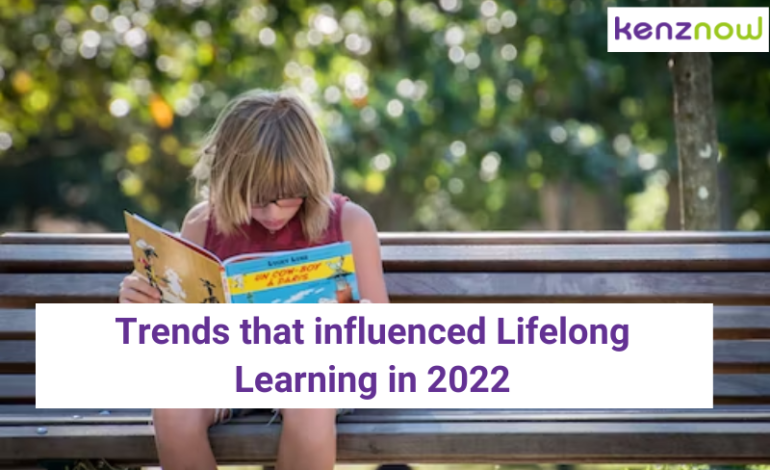
Trends that influenced Lifelong Learning in 2022
Higher education is developing and changing like many other industries have over the past few years. An increasing number of individuals are relying on postsecondary education to provide them with
Higher education is developing and changing like many other industries have over the past few years. An increasing number of individuals are relying on postsecondary education to provide them with fast routes to credentials that will enable them to land a better job or keep the one they now have. It is a known fact that non-degree education is giving students a chance to showcase their skills while enhancing other learning methods.
In the middle of this upheaval, higher education analysts have determined three things that will shape lifelong learning in 2022—technology, job dissatisfaction, and the emergence of micro-credentials. Kenznow has mentioned 3 trends below, that have influenced lifelong learning in 2022.
3 Trends that influenced Lifelong Learning in 2022
1. Micro-credentials
Micro-credentials are educational opportunities that concentrate particularly on a skill or competency that has been gained. These brief, focused courses help students develop a certain set of abilities for upskilling or reskilling. Despite the increased attention that educational institutions are giving to micro-credentials, more support is required from businesses and all tiers of the government to convince students of the benefits of these initiatives. It has been discovered that micro-credentials differ in price, curriculum, and length of completion, which presents a problem for students and employers that lack the time to analyze the specifics of each program. Although micro-credentials provide a special route to skill validation, there are presently no national criteria for micro-credentials.
2. Job dissatisfaction
There has been a significant increase in the number of people quitting their jobs as a result of low earnings, rising inflation rates, and unfavorable working circumstances. Many people are instead choosing new positions where they can earn more money, have more freedom, or like their work more. The growing number of restless workers wishing to upskill is an opportunity to offer short courses and stackable programs that enable learners to swiftly gain only the credentials they need for job transition or career advancement, without the multi-year commitment of a degree program.
Interested to know about the trending subjects for lifelong learning? Kenznow has listed 8 top trending subjects for lifelong learning. Read Trending Subjects for Lifelong Learning – Kenznow
3. Technology
The pandemic compelled educational institutions to quickly switch to online schooling, proving that lifelong learning is not restricted to a specific area. Due to the normalization of online learning environments in school, many students are not eager to return to traditional classroom settings. Terms like “flexible,” “online,” and “part-time” from the websites of lifelong learning institutions indicate potential students to connect with a broader range of learners relying on technology. There is so much free educational material available online today that providers of lifelong learning need to help students to select their interested courses.
Together, these three elements demonstrate the need for lifelong learning in preparing individuals for a changing labor market. For lifelong learning institutions to best educate today’s lifelong learners for the new future of work, professional development should be ongoing and flexible.



